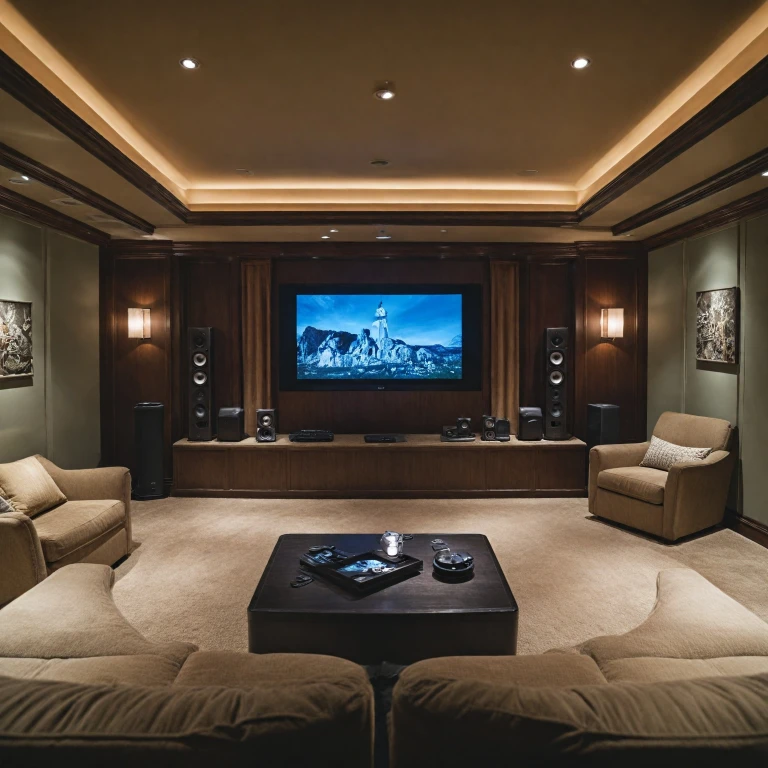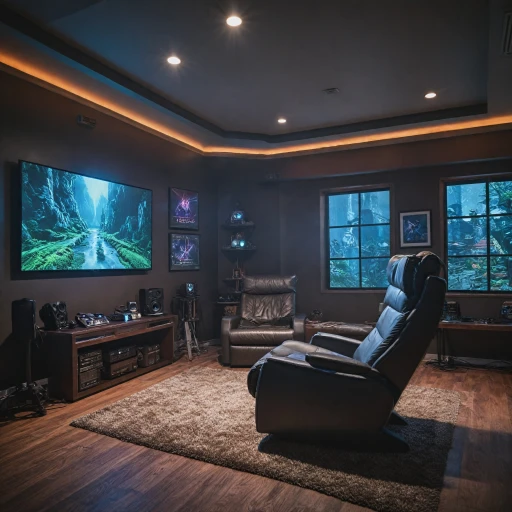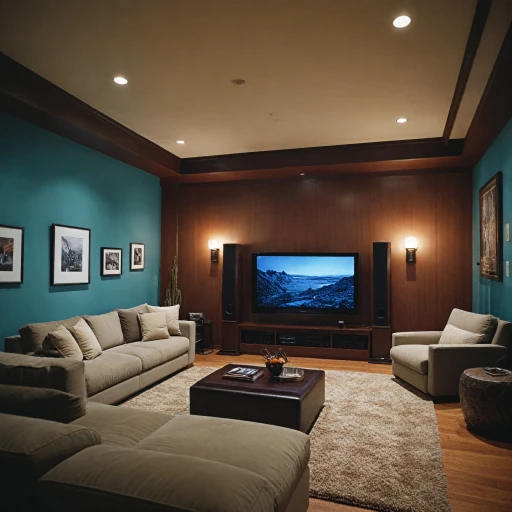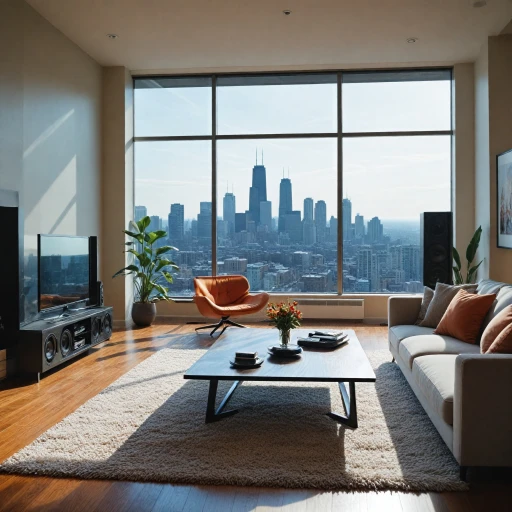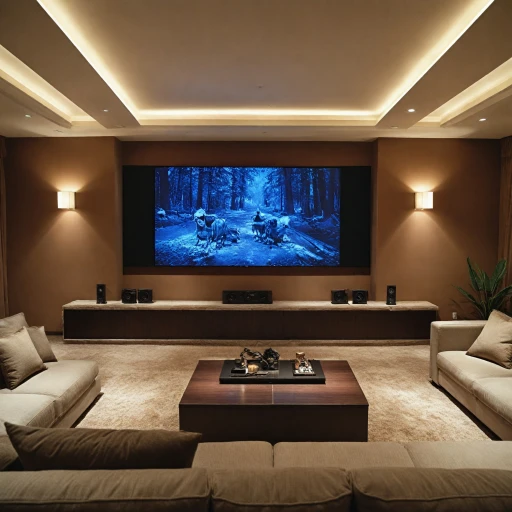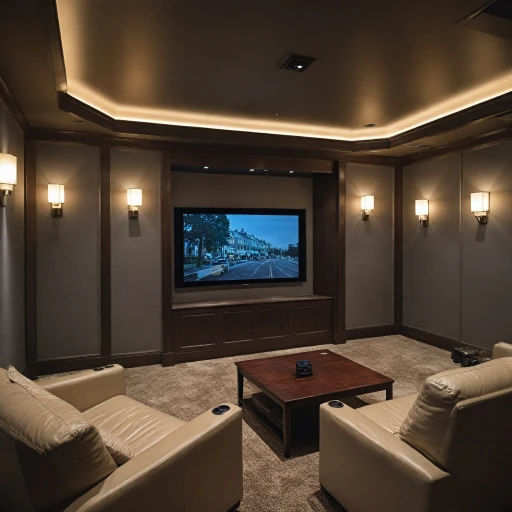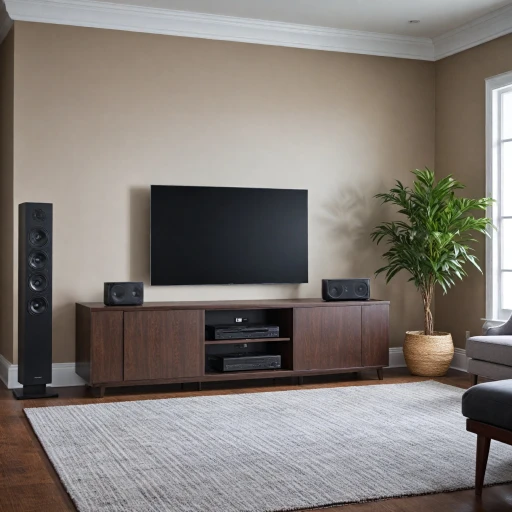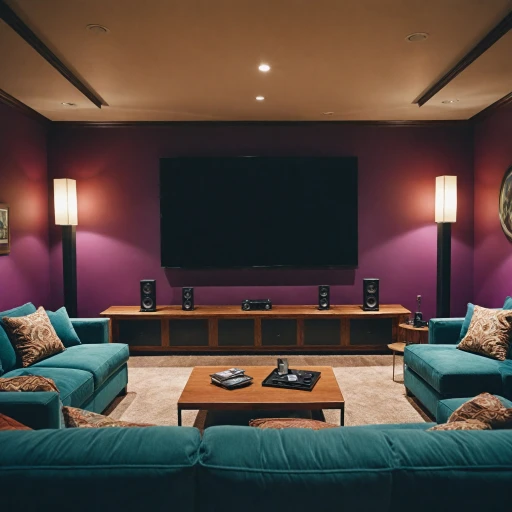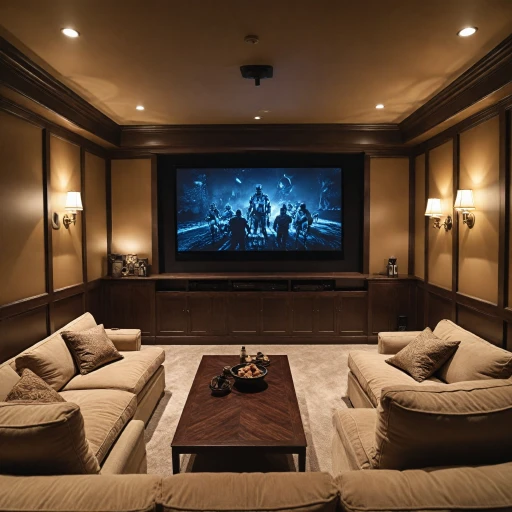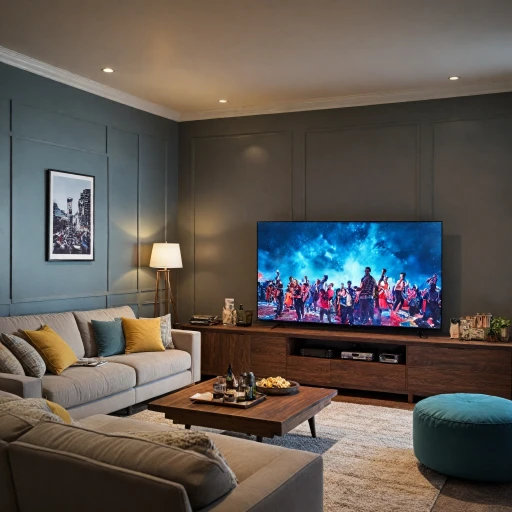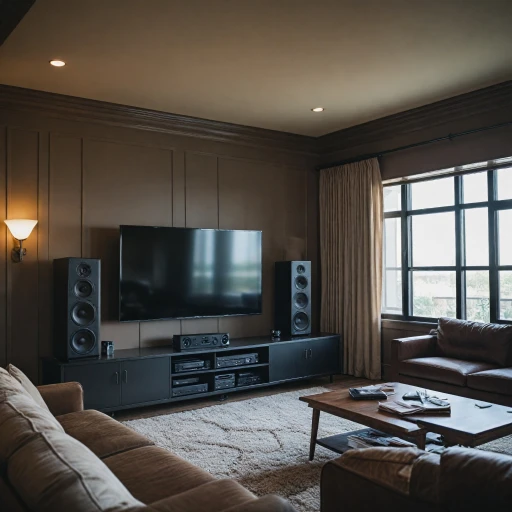Understanding the Role of a Center Speaker Stand
The Importance of a Center Speaker Stand in Audio Clarity
A center speaker stand plays a pivotal role in the ecosystem of a home theater setup, acting as the focal point for dialogue and primary audio output. This stand elevates your center speaker to an optimal height, ensuring a clear, unobstructed path for sound waves to travel. This is especially crucial for center channel speakers, which are responsible for delivering the bulk of dialogue and central audio elements in any cinematic experience. Positioning your center channel correctly enhances the overall surround sound experience by ensuring balanced and even audio distribution across your viewing area. This can make a significant difference when watching movies or listening to music, creating a more immersive experience by enhancing dialogue clarity and ensuring that audio cues are well-defined. When selecting a stand, key elements like build quality and adjustability come into play. Brands such as Sanus offer a variety of center speaker stands, providing low-profile options that blend seamlessly with your existing decor. Consider those with heavy duty and black iron center constructions for better stability, as they support a range of speaker weights and sizes, from compact to large-scale setups. Investing in the right center speaker stand with complementary accessories can be a cost-effective way to enhance your home theater, potentially saving on modifications or additional mounts later. Whether opting for a pre-made solution or crafting a DIY option, proper placement and secure mounting are essential to improve the sound quality delivered by your center speaker without any obstruction. To further enhance your home theater’s acoustics, explore options to "choose the right speakers with wall mounts" and ensure that each speaker in your setup is optimally positioned for the best listening experience.Choosing the Right Center Speaker Stand for Your Setup
Key Considerations for Selecting Your Stand
When choosing the right center speaker stand for your home theater, there are several key factors to consider to ensure the best audio performance and aesthetic appeal. Understanding these factors can significantly enhance your theater experience.
- Compatibility: Ensure that the stand you choose is compatible with your specific speaker model. Some stands are designed to accommodate certain sizes, from compact bookshelf speakers to larger channel speakers.
- Height and Adjustability: Look for a stand that positions your center channel speaker at ear level. Many stands offer adjustable heights, which provide flexibility in setting the perfect sound stage.
- Build Material: Opt for stands made from robust materials like heavy-duty steel or durable iron. Brands like Sanus offer sleek, low-profile designs in stand black finishes that complement modern home theater setups.
- Cable Management: Consider stands with built-in cable management systems to keep your setup neat and organized.
- Design and Style: The stand should not only be functional but also match the aesthetic of your space. Choices range from open box styles to traditional wooden or sanus steel designs.
- Price and Shipping: Balance quality with price, keeping an eye out for offers like free shipping or bundle deals with speakers or projector screens. Assess total costs, including potential accessories.
Taking the time to evaluate these elements ensures that your center channel speaker stand not only enhances your audio quality but also complements your theater's decor. Whether you prefer a stand black finish or a more traditional look, the right choice will anchor your audio setup while providing aesthetically pleasing support.
Proper Placement of a Center Speaker Stand
Ensuring Optimal Placement for Clear Sound
When setting up your home theater, proper placement of the center speaker stand is crucial for achieving clear and balanced audio. The central location for your center speaker allows it to effectively deliver dialogue and primary audio, complementing the visuals on your projector screens. The first step in positioning your center speaker stand is to align it with your screen or monitor. This alignment ensures that the audio projection from your center speaker will match the visual input, creating an immersive experience. The center speaker should ideally be placed either directly above or below your screen without obstructing your view or sound flow. It's important to keep your center speaker at ear level or tilted slightly towards the seating area. This position helps in directing the sound to where the viewers are seated, which is particularly beneficial for low-profile setups or when using a heavy duty iron center speaker stand. While setting up, consider the height and build of your center speaker stand. For example, stands from brands like Sanus or VTI offer a variety of heights and designs, allowing you to choose one that complements your audio needs and aesthetic preferences. Additionally, opting for a center stand that can support your speaker’s weight while offering stability, like a sanus steel model, can prevent unwanted vibrations or shifts. As you evaluate the placement, assess whether mounting your speakers or using stands mounts will suit your space better. Mounting is ideal for those looking for a more permanent solution to integrate with wall designs, whereas stands offer flexibility and the option for rearrangement. For added convenience, selecting a stand pair with free shipping options may also enhance your purchasing experience. This practicality ensures your setup is not only functional but also aligned with your design preferences. Remember, the key is finding the balance between functionality and aesthetics, ensuring your audio setup integrates seamlessly with the rest of your home theater environment. By focusing on these aspects, your channel speaker will enhance the viewing experience while maintaining sound precision and clarity. For more insights on optimal sound integration for your home theater, consider checking our guide on selecting the ideal projector screen to complement your audio setup.DIY vs. Pre-made Center Speaker Stands
Weighing the Options: DIY or Pre-made Choices
When considering a center speaker stand for your home theater, you might be faced with two main options: purchasing a pre-made stand or constructing a DIY solution. Each option comes with its own set of advantages and disadvantages. The decision largely depends on your unique needs, budget, and preferences. Purchasing a pre-made center channel stand often provides the benefit of quality assurance. Brands like Sanus and VTI offer a wide variety of stands that are designed to provide excellent support for your center channel speaker. These stands are often made of durable materials like iron and are specifically engineered to enhance sound quality. A pre-made stand is typically ready to be used directly out of the box, ensuring reliability without the need for extra customization. Moreover, many pre-made options come with free shipping, adding to their convenience. However, constructing your own DIY stand can be a rewarding project. It allows you to tailor the stand precisely to your home theater’s design and specific requirements. A DIY solution can be more cost-effective and provide you with the flexibility to choose and use materials that blend seamlessly with your existing setup. For some, the endeavor can be an engaging hobby that adds a personal touch to their space. Whether you opt for a pre-made or DIY stand, consider factors such as the weight of your center speaker, the height of the stand necessary to optimize sound projection, and the aesthetic integration with your theater environment. While DIY solutions grant artistic freedom, pre-made stands, especially models with low profile designs or those from renowned manufacturers like Sanus steel, provide stability and ease for those more focused on performance and reliability. Ultimately, the choice between a pre-made or DIY center speaker stand should align with your personal priorities, whether they lean towards hands-on creativity or choosing a tried-and-tested product that offers predictable results.Maintenance Tips for Your Center Speaker Stand
Maintaining Your Center Speaker Stand for Longevity
Ensuring the longevity and performance of your center speaker stand involves simple yet crucial maintenance practices. Regular attention can prevent issues and enhance the sound quality of your home theater system.- Dust and Clean Regularly: Dust and dirt can accumulate on speaker stands, affecting their appearance and potentially their performance. Lightly dust your stand regularly with a soft cloth. If necessary, use a damp cloth for more stubborn dirt, but ensure the stand is completely dry afterward to prevent damage, especially if it’s a Sanus steel or iron center stand.
- Check Stability: Periodically check the stability of your stand. Whether you have a stand center option or a wall-mounted setup, make sure all bolts, screws, and mounts are secure. This not only prevents accidents but also ensures your speakers provide the best audio experience.
- Monitor for Wear and Tear: Over time, even heavy-duty stands may exhibit signs of wear. Pay attention to any signs of rust, corrosion, or structural damage, particularly on components like the top rack or the speaker stand base. These can affect the performance and safety of your audio setup.
- Avoid Overloading: Be mindful not to overload your stand with additional audio or video accessories. Each stand comes with a weight limit; sticking to this ensures your setup remains stable and prevents damage. For instance, a VTI stand or a low-profile stand pair may have specific guidelines regarding the weight and dimensions of supported speakers and subwoofers.
- Reevaluate Placement: Reevaluate the placement of your center speaker and its stand occasionally, especially if you've added new components like receiver upgrades or projector screens. Optimal positioning can significantly impact audio quality. Continually adapting your setup helps maintain the best possible sound performance from your center channel speakers.
